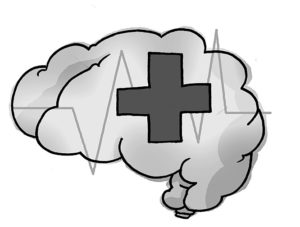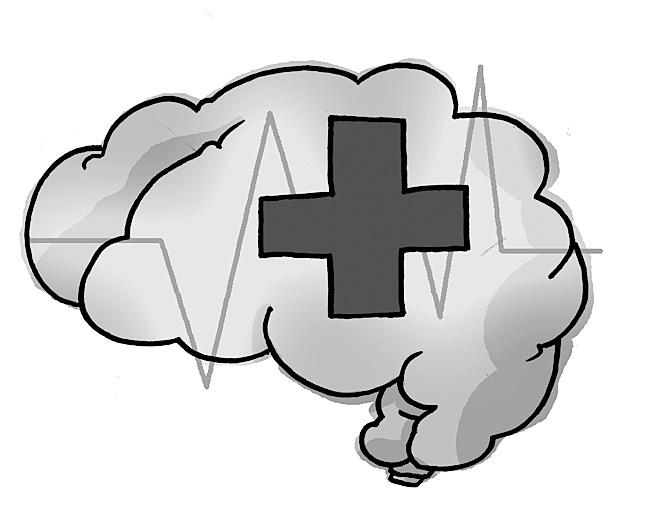Mike Sholars
Editor-in-Chief
If your tooth hurts, you go to the dentist.
Ignoring your teeth will not win you points with your gender of choice. Your friends will not speak of your bravery in hushed tones as you willingly let your pearly whites fester into yellow, pock-marked shards of enamel and plaque. There is no shame in seeking help with your dental health.

So why do we stigmatize those who seek help with their mental health?
There are two articles in this week’s issue about on-campus groups that promote a positive view of confronting neurological disorders. They offer support to students who live with problems that they feel their friends would reject them for. Some of the hardest-hitting neurological disorders—schizophrenia, for instance—manifest around the late teens/early 20s: smack dab in the middle of most people’s post-secondary careers. Statistically speaking, someone in your vicinity is dealing with some sort of mental disorder.
I’m not saying this to make other students out to be ticking time bombs, but the university experience isn’t exactly friendly to those with neurological disorders. Mandatory in-class presentations are an annoyance to many, but a straight-up nightmare for people with anxiety disorders. The exam season is an emotional rollercoaster—doubly so with a mood disorder. It’s a monumental challenge to keep a balanced diet on a meal plan (no disrespect to Wendy’s and the Baconator), and it’s even harder for people with eating disorders.
I have a personal stake in this discussion. I was diagnosed with Attention Deficit Hyperactive Disorder when I was eight years old. The things I really love about myself (full of energy, I can go off on amusing tangents, my brain can amuse itself) have proven to be disastrous in my university career (cannot sit through long lectures, I get too distracted to finish important essays, my brain cannot process long lines of information). I’m not saying my neurological condition is a modern tragedy, but I have failed nine credits (to date) for reasons inextricably linked to my ADHD.
It’s hard for my friends to take me seriously; a broken leg or a case of stomach flu is an easy problem to identify and relate to. When the problem is something as internal and vague as “my brain does things differently,” people are slow to support you. If the pain can’t be seen or fixed in an obvious way, the diagnosis switches from “seek help” to “suck it up”.
Neurological disorders end up being classified as rare, boutique illnesses that only afflict the squeaky wheels on campus.
I asked around and found some other students who have taken advantage of the Counselling and Disability Services (CDS) at York. They expressed varying levels of satisfaction; some of them were facing problems that required the aid of a psychiatrist, which doesn’t fit into the typical student budget. Others didn’t want to face their families and admit they had something wrong with them. The most common complaint, though, was that wait times were too long; some said they had to wait the better part of a month for their next appointment.
If this is a niche problem on our campus, if the need for mental help is so miniscule that it deserves to be devalued and censored out of regular conversation, if no normal person would ever need to see a shrink, answer me this:
Why are the lines so damn long if no one needs help?


